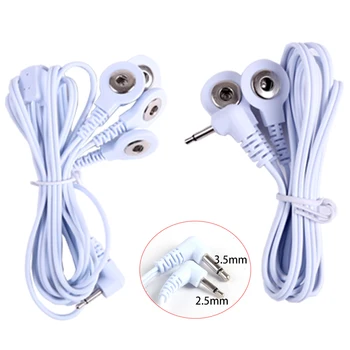How Migrants Are Shaping the Future of Work

Breaking Barriers: How Migrants Are Shaping the Future of Work
Migration has always been part of human history, but in today’s globalized world, it is more significant than ever. Migrants are increasingly playing a crucial role in shaping the future of work across various industries and countries.
This article explores how migrants are breaking barriers in the workforce, highlighting their contributions, and examines perspectives from different countries, particularly in Africa. We will also delve into the institutions necessary for migration, scholarship opportunities, and resources for acquiring visas.
The Role of Migrants in the Workforce
1. Filling Skills Gaps
Many countries face acute skill shortages in numerous sectors, including healthcare, technology, engineering, and agriculture. Migrants often bring the expertise required to fill these critical roles. For example:
– Healthcare: Migrants make up a significant portion of healthcare workers in many developed countries. In the U.K., one-third of doctors come from overseas, addressing the shortage of medical professionals in the National Health Service (NHS).
– Tech Industry: In the U.S., immigrants founded some of the largest tech companies, including Google, Intel, and Tesla, fostering innovation and economic growth.
2. Enhancing Economic Growth
Migrants contribute substantially to economic development by:
– Creating Jobs: Many migrants become entrepreneurs, launching businesses that create jobs for both locals and fellow migrants.
– Diversifying Economies: By introducing new ideas and practices from their home countries, migrants help diversify the economy and stimulate growth.
3. Fostering Cultural Exchange
Migrants play a pivotal role in promoting cultural diversity. This cultural exchange enriches workplaces and fosters creativity and innovation. Companies that embrace diversity are often more agile and better equipped to compete in a global marketplace.

Country-Specific Perspectives
Africa
Africa is experiencing significant migration both within the continent and beyond. Key trends include:
– Intraregional Migration: Many African professionals migrate to neighboring countries to seek better opportunities. For instance, South Africa attracts many skilled workers from Zimbabwe and neighboring nations.
– Diaspora Influence: African diaspora communities are increasingly contributing to their countries of origin through remittances, investments, and knowledge transfer.
Key Institutions:
– African Union (AU): Promotes policies and initiatives to support labor migration and encourage intra-African mobility. Visit the African Union for resources.
– Regional Economic Communities: Such as ECOWAS (Economic Community of West African States), which facilitates free movement across member countries.
United States
The U.S. is a major destination for migrants seeking opportunities, and they are crucial in various industries.
– STEM Fields: Immigrants significantly contribute to STEM (Science, Technology, Engineering, Mathematics) fields, with nearly 30% of STEM workers being foreign-born.
– Entrepreneurship: The U.S. is home to numerous immigrant-led startups, creating jobs and driving innovation.
Key Institutions:
– US Citizenship and Immigration Services (USCIS): Governs visa applications and immigration policies. Visit USCIS for more information.
Scholarships: Programs like the Fulbright Program and the National Science Foundation (NSF) provide funding for international students and researchers. Links: Fulbright Program, NSF Scholarships
Canada
Canada is known for its welcoming immigration policies, actively seeking skilled professionals to contribute to its economy.
– Express Entry: Canada’s points-based immigration system prioritizes skilled immigrants, enhancing labor market outcomes.
– Multicultural Society: Canada’s diverse workforce promotes economic growth, creativity, and innovation.
Key Institutions:
– Immigration, Refugees and Citizenship Canada IRCC: The primary authority responsible for immigration policies. Visit IRCC.
Scholarships: The Vanier Canada Graduate Scholarships support international students at the postgraduate level. Visit
– Vanier Scholarships
Australia
Australia has a well-structured immigration framework to attract skilled migrants.
– SkillSelect: Australia’s points-based system prioritizes skilled workers needed in specific industries.
– Contributions in Various Sectors: Migrants significantly impact sectors such as healthcare, engineering, and IT.
Key Institutions:
– Department of Home Affairs: Manages immigration and citizenship. For information, visit Home Affairs.
Scholarships: The Australia Awards provide funding for students from developing nations. Visit Australia Awards
European Union
The EU allows for the free movement of workers across member states.
– Opportunity for Skilled Professionals: Skilled migrants can easily access job markets across Europe, enhancing labor mobility. Contribution to Diversity: The EU workforce is becoming increasingly diverse, comprising a range of talents that drive innovation.
Key Institutions:
– European Commission: Provides policies and programs for labor mobility. Visit the European Commission for more information.
Scholarships: The Erasmus+ Program offers funding for education and training opportunities within Europe. Visit Erasmus+ for more information.

Institutions and Resources for Migration
1. Understanding Visa Options
Migrants must research and understand visa types for their destination country. Common types include:
– Skilled Worker Visas: For professionals in demand.
– Student Visas: For studying and working part-time.
– Family Reunification Visas: For bringing family members into the country.
2. Required Documentation
Essential documents typically required for the migration process include:
– Valid passport.
– Academic qualifications (degrees, certificates).
– CV detailing work experience.
– Financial statements proving sustainability.
3. Language Proficiency
Many countries require migrants to prove language proficiency (e.g., IELTS or TOEFL for English-speaking countries). Language skills improve job prospects and foster cultural integration.
Financial and Cultural Preparation
Financial Planning
Establish a budget that covers:
– Visa fees.
– Flight costs.
– Initial accommodation expenses.
– Living costs for the first few months.
Cultural Familiarization
Familiarize yourself with the culture of your new country. Join expat communities online or attend local events to build a support network.
Conclusion
Migrants are breaking barriers and reshaping the future of work across the globe. Their contributions are invaluable in filling skills gaps, driving innovation, and cultivating cultural diversity in workplaces.
As the world becomes increasingly interconnected, professionals should consider the opportunities in migration to not only advance their careers but also participate in a global workforce that fosters collaboration and growth.
By understanding the necessary migration processes, leveraging resources, and engaging with key institutions, potential migrants can navigate their journey successfully.
Embracing the opportunities of migration today can pave the way for a brighter and more prosperous future. Whether you’re looking to expand your career, gain cultural insights, or settle in a new country, the time to consider migration is now.

Further reading
Top UK Jobs, Locations, & How to Apply
Exploring Job Opportunities in China
Employment Opportunities in China for Teachers
A Guide to Available Jobs in France
From Visa to Victory for Migrants
Shop With US


































Leave a comment